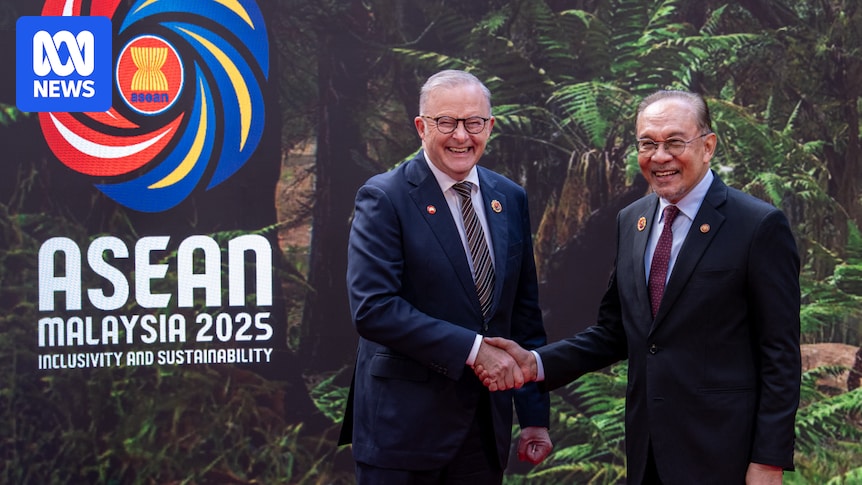
The Australian Prime Minister, Anthony Albanese, has set his sights on enhancing trade opportunities and fostering regional stability as he attends the ASEAN summit in Kuala Lumpur, Malaysia. Arriving last night, Albanese follows the visit of US President Donald Trump, whose trade policies have significantly impacted South-East Asian economies.
Many nations in the region, including Malaysia, Vietnam, and Cambodia, have been grappling with the tariffs imposed by the Trump administration. These countries are eager for a reduction in trade barriers, and some have already negotiated new deals with the US. For Australia, the summit presents an opportunity to diversify and deepen trade ties beyond the dominant Chinese and US markets.
Upon his arrival, Albanese emphasized the potential of South-East Asia as a burgeoning market. “What that represents is opportunities for economic growth in Australia, the creation of jobs in Australia, as well as a more peaceful and secure region,” he stated, underscoring his priorities for the summit.
Economic Aspirations and Strategic Investments
South-East Asia is projected to become the world’s fourth-largest economy by 2040, trailing only the United States, China, and India. In a speech scheduled for today, Albanese plans to outline the Australian government’s ambition to expand business connections within the region. “That requires more of us than signing an agreement, or issuing a declaration,” he is expected to say.
Albanese will announce a $175 million investment in a global investment manager owned by Australia’s industry superannuation funds. This investment aims to channel funds into sectors such as renewable energy, telecommunications, and logistics. He describes this as a “cornerstone transaction” that will pave the way for 15 Australian super funds to deepen their engagement across South-East Asia.
Additionally, another $50 million has been allocated for infrastructure funding. In 2022, businessman Nicholas Moore was tasked with exploring how Australia could enhance its connections with ASEAN nations, focusing on business, cultural, and educational avenues. Moore, present at the summit, acknowledged progress but emphasized the need for continued efforts. “I encourage more investors to seize the opportunity this dynamic region presents and utilize the support on offer,” he said.
Diplomatic Engagements and Security Concerns
This is Albanese’s first trip to Malaysia, where he was warmly received by Malaysian Prime Minister Anwar Ibrahim. The ASEAN summit gathers leaders from South-East Asian nations, alongside representatives from Australia, New Zealand, the US, and China. Albanese’s itinerary includes several high-profile meetings, starting with Japan’s newly elected Prime Minister Sanae Takaichi.
Japan has recently pledged to increase its defense spending, citing concerns over the military activities of China, North Korea, and Russia. In her meeting with Albanese, Takaichi emphasized the importance of a free and open Indo-Pacific, indirectly addressing China’s assertive behavior. “We would like to promote strategic cooperation with Australia, in addition to the existing Quad collaboration,” she stated.
The Quad, comprising India, Japan, Australia, and the US, has faced scrutiny since Trump’s presidency began. Albanese congratulated Takaichi on her recent electoral victory, affirming both nations’ commitment to “freedom in the Pacific and in our region.” He highlighted Australia’s decision to purchase Mogami frigates as a significant enhancement of their defense and security partnership.
Looking Ahead: Opportunities and Challenges
As Albanese continues his diplomatic engagements in Kuala Lumpur, the focus remains on forging stronger economic and security ties in a region marked by both opportunity and geopolitical tension. The investments and initiatives announced at the summit are expected to lay the groundwork for a more robust Australian presence in South-East Asia.
The outcomes of the summit could have far-reaching implications for Australia’s trade strategy and regional influence. With the global economic landscape continually evolving, the need for strategic partnerships and diversified markets has never been more critical. As Albanese prepares to welcome Takaichi to Australia for the annual leaders’ dialogue, the stage is set for continued collaboration and mutual growth.







